In this article:
Hair fall is a common issue faced by many people worldwide. There can be several reasons for it, such as stress and environmental factors.
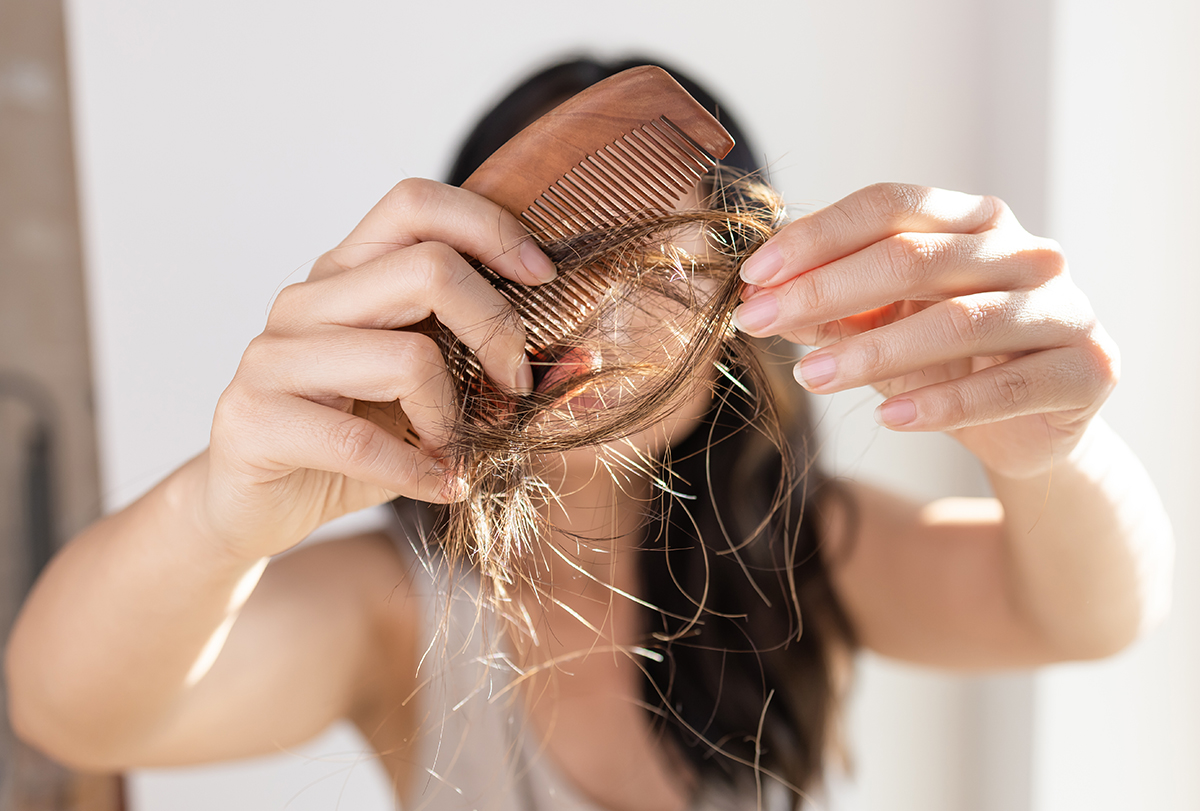
But one of the common beliefs among people is that changing hair oils can cause hair fall.
According to experts, this is not necessarily true, and no scientific evidence supports the claim that changing hair oils can cause hair fall.
The effectiveness of hair oils on hair health depends on the ingredients they contain.
This article will examine whether changing hair oils can lead to hair fall and will explore the scientific evidence behind it.
Possible Explanation
Controlling hair loss using a particular oil is only possible with regular and consistent use of the oil for a long period. So if you keep changing oils repeatedly, it might not give your hair sufficient time to respond positively, creating the belief that changing oils is causing the hair fall.
Also, changing hair oils is unlikely to be the sole cause of hair fall. Experts suggest that different factors, such as genes, hormonal shifts, tension, and improper nutritional intake, might contribute to hair fall when you change hair oils.
Dermatologists recommend selecting the right hair oil based on your hair type and scalp condition and regularly using that oil as part of your hair care regimen. (1)
This is because your hair might respond to the oil treatment only when it is continuously used. Moreover, sticking to one oil at a time helps maximize its benefits and keep issues such as hair loss under control.
However, if you experience very severe hair fall after changing hair oils, you may be doing the oiling wrong or you have an underlying medical problem that’s causing it. Therefore, it is best to identify the actual cause of your hair loss and take action to rectify it.
What Will Happen if You Use a Combination of Hair Oils?
Using a combination of hair oils creates a unique blend that can be beneficial for your hair, but it’s essential to understand how the blend works for you. Each oil has its own special qualities that can work with other oils to improve hair health.
However, it is critical to point out that you should not overdo some essential oils such as tea tree oil in your blend as using too much can be harmful. The combination of oils, in the right proportions, can be a great way to nourish and care for your hair.
Tips for Oiling Your Hair
If you have changed your hair oil and are experiencing hair fall, you may be committing some mistakes when oiling your hair and the hair fall may not be due to the new oil.
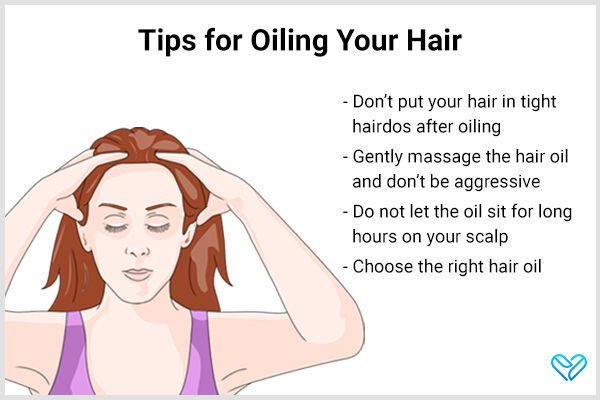
Here’s what you can do.
1. Don’t put your hair in tight hairdos after oiling
Tying your hair too tightly in a bun or braid after oiling can be harmful to your hair roots, leading to hair loss. This is because tight hairstyles can cause traction alopecia, especially when your hair is oiled and at its weakest.
The pressure from tightly fastening up your hair can damage the hair strands. So, avoid pulling your hair too tightly while tying it up or braiding it. (2)
2. Gently massage the hair oil and don’t be aggressive
Experts suggest that an intense scalp massage can weaken the hair roots. The excessive pressure and friction caused by vigorous massaging can lead to hair breakage. Therefore, it is recommended to massage your scalp gently.
3. Do not let the oil sit for long hours on your scalp
According to Ayurveda practitioners, leaving oil on your hair overnight can disrupt the kapha dosha, which is responsible for maintaining the structure and growth of hair.
Therefore, it is advised to avoid leaving oil in your hair for long periods. Experts recommend washing your hair after 30–45 minutes of oiling to prevent dirt buildup and excessive greasiness. (3)
4. Choose the right hair oil
Many hair experts recommend using oil to promote hair health. However, what most people don’t realize is that not all oils work effectively for the hair.
Some oils with high molecular weight, such as mineral oils derived from petroleum (such as petrolatum and paraffin oil) may not penetrate the scalp well. (4)
Instead, they can leave a heavy layer on the scalp’s surface, which attracts dust and buildup, potentially causing damage to the hair. So, when choosing oils for your hair, it’s essential to choose those with better penetration abilities such as coconut oil. (4)
How to Choose the Right Hair Oil
Choose a hair oil that gives you healthy hair while attending to your hair and scalp problems (such as dandruff and split ends).
If you have two main problem areas, you can choose two different hair oils – one that helps you with your main problem area, and a second one that responds to your secondary problem area.
However, it is best not to use two different oils on the same day.
If you want to change your hair oil, which oil should you choose? This is the big question.
Here are some of the popular oils that you can incorporate into your hair care routine.
1. Argan oil for oily hair/scalp
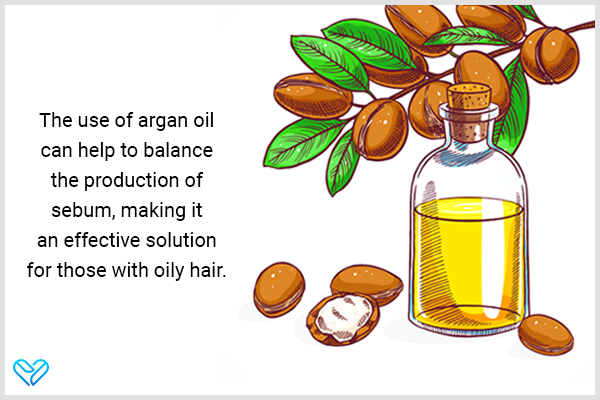
Argan oil is an excellent option for those with an oily scalp. Argan oil contains a high amount of oleic acid, which has been found to have a regulatory effect on sebum secretion.
Sebum is the oily substance produced by the sebaceous glands in the scalp, and an excess of it can lead to oily scalp and hair.
The use of argan oil can help to balance the production of sebum, making it an effective solution for those with oily hair. (1)
2. Coconut oil for brittle hair
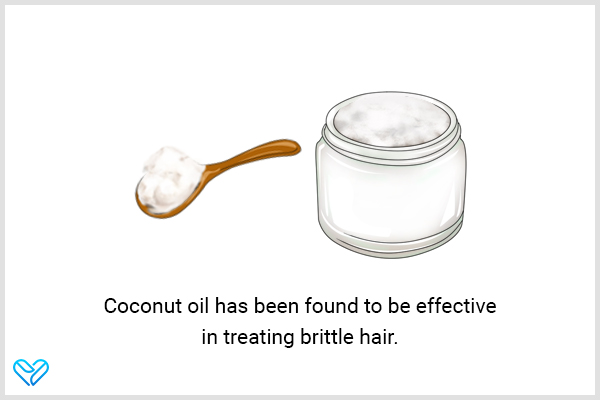
Coconut oil has been found to be effective in treating brittle hair. According to a review of literature analyzing the efficacy of hair oils, coconut oil has been clinically proven to improve hair quality and treat hair infestations.
However, evidence supporting its effect on hair growth is limited. Therefore, dermatologists may recommend the use of coconut oil only to treat brittle hair. (5)
3. Almond oil for dry hair
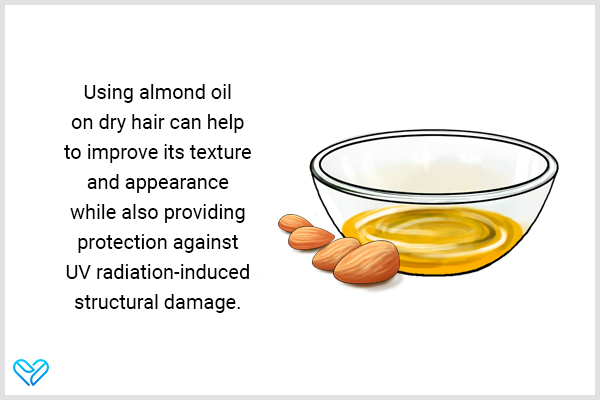
Almond oil is known for its emollient properties, which can help to soften and moisturize dry hair. It contains monosaturated and polyunsaturated fatty acids, as well as linolenic acid, stearic acid, and palmitic acid. Additionally, it is a rich source of vitamin E.
One unique benefit of almond oil is its ability to protect against ultraviolet (UV) damage due to its high content of fatty acids with double bonds.
Using almond oil on dry hair can help to improve its texture and appearance while also providing protection against UV radiation-induced structural damage. (1)
4. Castor oil for hair prone to androgenetic alopecia
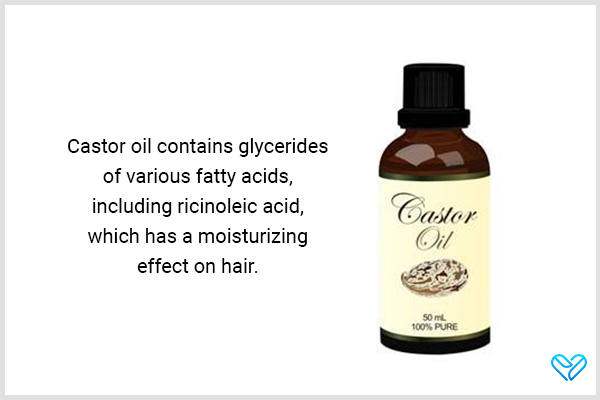
Castor oil is derived from the seeds of the Ricinus communis plant found in tropical and subtropical regions. The oil is processed to remove the toxic component ricin.
Castor oil contains glycerides of various fatty acids, including ricinoleic acid, which has a moisturizing effect on hair.
The ricinoleic acid in castor oil has been shown to be a potential treatment for androgenetic alopecia. Castor oil may promote hair growth due to its structural similarity to the prostaglandin (a chemical found in the body naturally) family. (1)
5. Olive oil for scalp psoriasis
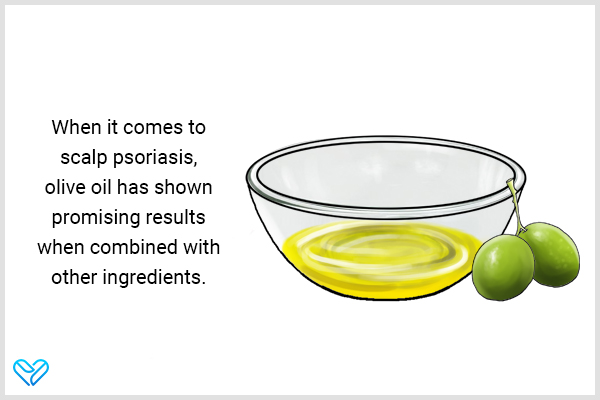
Olive oil is derived from the fruits of the Olea europaea plant, which is native to the Mediterranean regions.
Olive oil contains arachin, linolein, and palmitin, but its main component is olein. When it comes to scalp psoriasis, olive oil has shown promising results when combined with other ingredients.
A mixture of honey, olive oil, and beeswax in equal parts has been found to significantly improve symptoms such as redness, scaling, thickening, and itchiness. This is due to its antioxidant action. (1)
6. Amla oil for premature graying
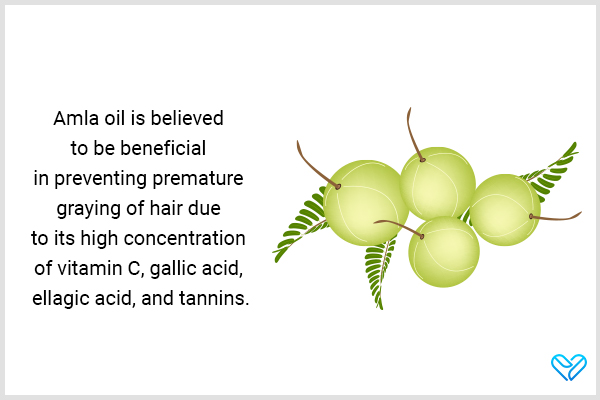
Premature graying of hair could be caused by the production of reactive oxygen species (ROS) that damage the melanocytes, which are responsible for hair pigmentation.
Amla oil is believed to be beneficial in preventing premature graying of hair due to its high concentration of vitamin C, gallic acid, ellagic acid, and tannins. These components in the oil help to absorb ROS and prevent damage to the melanocytes, thus preserving natural hair pigmentation. (1)
When to See a Dermatologist
If modifying your hair care routine does not result in healthy hair, it is advisable to consult a board-certified dermatologist. Your hair care practices may not be the underlying cause of your issues.
It is essential to seek the assistance of a dermatologist, particularly if you are worried about thinning hair or hair loss, as many causes can be treated or stopped. The earlier the problem is detected and treated, the more favorable the outcome is. (6)
Most-Asked Questions
Should I use hair oil every day?
It is not necessary to use hair oil every day, as this can make your hair greasy and attract dirt and dust. It is recommended to use hair oil once or twice a week, depending on your hair type and scalp condition.
When should I oil my hair?
It is recommended to apply oil before washing your hair and to leave the oil on for at least 30 minutes before washing it off.
Final Word
Changing hair oils is not necessarily a direct cause of hair fall. The problem can be due to other factors such as genetics, hormonal changes, stress, and poor diet.
It is essential to choose the right type of hair oil based on your hair type and scalp condition and to use it regularly as part of a healthy hair care routine. You can consider using oils such as argan oil, coconut oil, almond oil, and castor oil based on your hair needs.
With proper care and attention, you can prevent hair fall, promote hair growth, and enjoy healthy and beautiful hair.
- Was this article helpful?
- YES, THANKS!NOT REALLY


